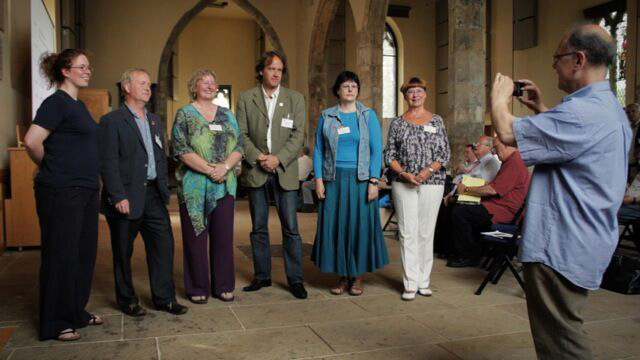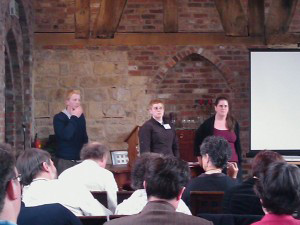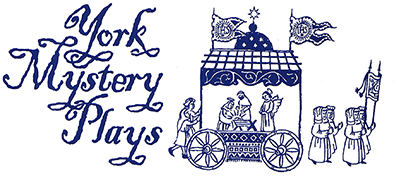York Mystery Plays are a collection of individual plays that tell the story of the Bible, from the Creation to the Last Judgement, with each play covering a biblical episode.
They were traditionally performed during the Feast of Corpus Christi, a festival held between late May and the middle of June to celebrate the Eucharist as the body of Christ.
It’s not known who wrote the plays, but some historians believe that many were written by the same author, who was perhaps a member of one of the Guilds.

In 2012 the Trust established a National network of Mystery Plays, including Lincoln, Lichfield, Gloucester & Chester.
Traditionally, they were performed on decorated waggons that moved about the city to allow different crowds to watch each play. Originally, 48 plays were performed by 48 different guilds, making one ‘cycle’ of Mystery Plays. The entire cycle could take up to 20 hours to perform and could be spread over a number of days.
Guilds would perform stories relevant to their work; for example, the Shipwrights performed the Building of the Ark, while the Butchers played the Death of Christ or Crucifixion. The Guild waggons would made their way down Micklegate Hill, across Ousebridge, down Coney Street to the Guildhall, down Stonegate to the Minster gates and finally down Petergate to the Pavement.

The Trust works alongside young Academics to provide new insights into the Mystery Plays.
After a run of nearly 200 years, the plays were confiscated during the Reformation with the final medieval production in 1569.They stayed dormant for around 400 years, during which time many of the Guilds which had supported had ceased to exist.
In 1951, the York Mystery Plays were revived in a performance on a fixed stage in the Museum Gardens, a tradition which lasted until 1988. These were followed by performances in York Theatre Royal in 1992 and 1996. Other fixed stage performances have taken place in 2000 and 2016 at York Minster and in 2012 the plays were presented in the Museum Gardens.
In 1994, Yorkshire theatre historian Jane Oakshott worked alongside the Friends of York Mystery Plays, the Centre for Medieval Studies at the University of York and the York Early Music Festival to direct the first processional performance of the plays in modern times in York.
Oakshott approached the Guilds to bring to their attention the heritage of the Mystery Plays and since 1998, the plays have been performed by the Guilds on waggons every four years – filling the city streets with drama and spectacle and offering a truly unique experience for visitor and locals. The plays are performed from noon until early evening on two Sundays in July.
York Festival Trust has taken responsibility for preserving the waggon play tradition for the community of the 21st century. By staging the plays in their original performance context on wagon, it not only recognises and respects tradition, but makes a very real contribution to the present by creating an engaging, personable experience for York and its communities.
